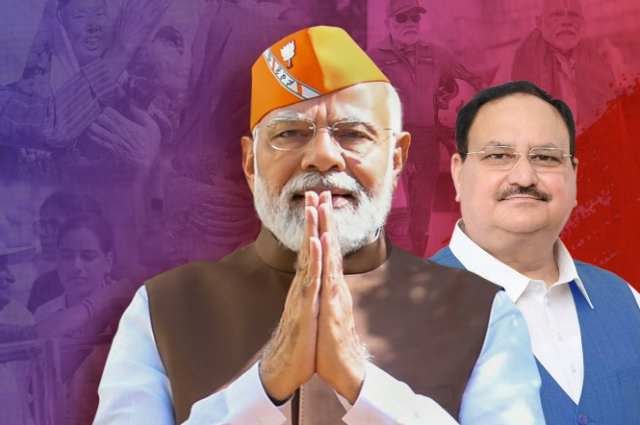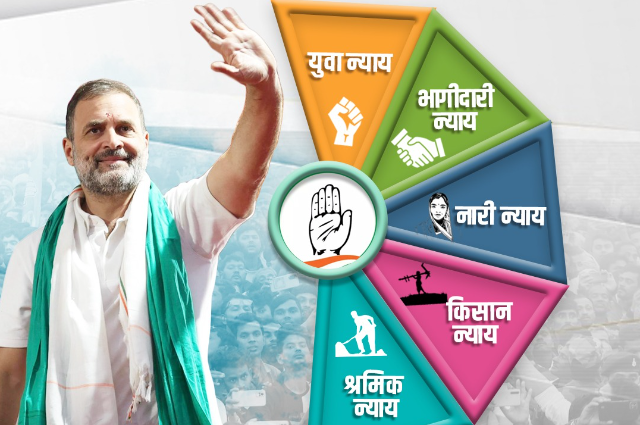As India gears up for the crucial 2024 elections, the Bharatiya Janata Party (BJP) and the Indian National Congress (INC) offering distinct trajectories for the nation's future. In this in-depth analysis, we delve into the granular details of each party's aims and promises, scrutinizing their pledges and prospects for the electorate's consideration.
BJP Manifesto:
- Economic Resurgence and Infrastructure Revolution:
The BJP's manifesto delineates a strategy grounded in supply-side economics, aiming to enhance productivity and competitiveness through deregulation and infrastructure investments. This entails leveraging public-private partnerships (PPP) to catalyze infrastructure development, particularly in transportation and digital connectivity. The party envisions the creation of Special Economic Zones (SEZs) and investment corridors to spur economic activity and attract foreign direct investment (FDI).
- National Security and Sovereignty:
From a defense standpoint, the BJP manifesto underscores the imperative of achieving strategic autonomy and technological sovereignty. It outlines a holistic approach encompassing defense modernization, indigenous arms production, and geopolitical alliances to safeguard India's sovereignty. The emphasis is on developing a robust defense industrial base through technology transfers, research and development (R&D) collaborations, and export promotion.
- Inclusive Development and Social Empowerment:
In the terms of social policy, the BJP advocates for a paradigm shift towards outcome-based governance, leveraging data analytics and artificial intelligence (AI) for targeted interventions. It articulates a vision of empowering marginalized communities through skill development initiatives tailored to the demands of the digital economy. Furthermore, the manifesto champions the use of blockchain technology for transparent delivery of social welfare benefits, ensuring accountability and efficiency.
- Green Agenda and Sustainable Growth:
Environmentally, the BJP manifesto espouses a circular economy framework, emphasizing resource efficiency, waste management, and renewable energy adoption. It envisions a smart grid infrastructure enabled by Internet of Things (IoT) devices and distributed ledger technology (DLT) for optimizing energy consumption and reducing carbon emissions. Moreover, the manifesto advocates for leveraging satellite imaging and geospatial analytics to monitor ecological trends and inform policy decisions.
Congress Manifesto:
- Economic Rejuvenation and Social Justice:
The Congress manifesto articulates a Keynesian approach to economic revitalization, advocating countercyclical fiscal policies and targeted interventions to stimulate demand and restore investor confidence. It proposes the establishment of a National Investment Bank (NIB) to finance critical infrastructure projects and spur job creation. Additionally, the manifesto underscores the role of big data analytics and predictive modeling in identifying structural bottlenecks and formulating evidence-based policies for inclusive growth.
- Healthcare Revolution and Educational Renaissance:
In healthcare, the Congress manifesto advocates for a universal health coverage model underpinned by telemedicine, wearable health tech, and personalized medicine. It envisions a health information exchange (HIE) ecosystem facilitated by interoperable electronic health records (EHR) and blockchain-based data sharing protocols to enhance care coordination and patient outcomes. Educationally, the manifesto proposes a competency-based learning framework supported by adaptive learning algorithms and immersive technologies to personalize education delivery and foster lifelong learning.
- Environmental Preservation and Ecological Sustainability:
Environmentally, the Congress manifesto underscores the imperative of transitioning to a regenerative economy, characterized by closed-loop production systems and biomimetic design principles. It advocates for the mainstreaming of ecosystem-based approaches in land-use planning and natural resource management, leveraging geospatial modeling and remote sensing technologies for biodiversity conservation and climate resilience. Furthermore, the manifesto calls for the establishment of a National Green Tribunal (NGT) empowered with jurisdictional authority to adjudicate environmental disputes and enforce compliance with ecological safeguards.
In summary, both the BJP and Congress manifestos reflect a nuanced understanding of complex economic, social, and environmental challenges, proposing technologically sophisticated solutions tailored to India's development context.



